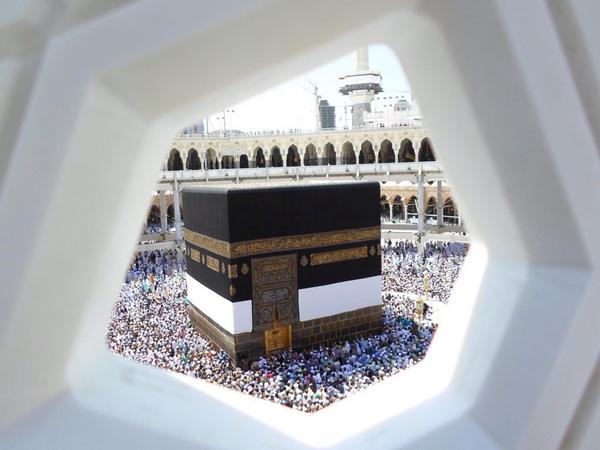Hajj explained: your simple guide to Islam’s annual pilgrimage
Millions of Muslims this week flock to Islam’s holiest city of Makkah to perform the annual hajj pilgrimage.
Being the fifth pillar of Islam, hajj or the act of making a pilgrimage is a mandatory religious duty for Muslims.
Adult Muslims are required to perform hajj at least once in lifetime if they have the physical and financial ability.
In it, pilgrims follow the footsteps of Prophet Ibrahim and his family, said Ridwan al-Sayed, professor of Islamic studies at the Lebanese University in Beirut.
“Prophet Ibrahim preached the oneness of allha , a message that was later revived and renewed by the last of all Prophets, Muhammad (peace be upon him),”
“Ibrahim, along with his son Ismail built the Kaaba in the holy city of Makkah. And accordingly, this pillar reflects the notion of complete submission to Allah and the Abrahamic faith.”
For many pilgrims, hajj is perceived to be a journey of the body and the soul at the same time.
The first day of hajj is 8 Zil Hijjah, the last month of the Islamic calendar. The holy journey requires the pilgrim to perform ten rituals before and during hajj.
Here are the basic steps you may want to know about hajj:
State of Ihram: This is considered the first step for any pilgrim wishing to perform hajj. To enter the state of Ihram, a pilgrim has to recite an intention to perform hajj called the Talabiya. This is when a pilgrim prepares one’s soul, mind and body for journey to the Almighty God. Entering the stage begins from the Miqat, or a place that is outside the pilgrimage area.
Men and women going on hajj adhere to a specific dress code which is aimed at showing modesty and shedding all signs of wealth. Men don unstitched white garments, while women wear normal stitched clothes and a headscarf. Women are forbidden however from wearing the burqa or niqab.
In fact, the word Ihram originates from the Arabic term Tahreem, which means prohibited. Because the state is believed to have a special essence of spiritual purity, there are certain acts that are not allowed for pilgrims. Among them are using perfumes, cutting hair or nails, and slaughtering animals.
Makkah: The Saudi Arabian city is considered Islam’s holiest site, as it holds al-Masjid al-Haram or the Grand Mosque that surrounds the Kaaba, a cuboid shaped building which Muslims believe has been put up together by Prophet Ibrahim and his son Ismail almost 4, 000 years ago.










